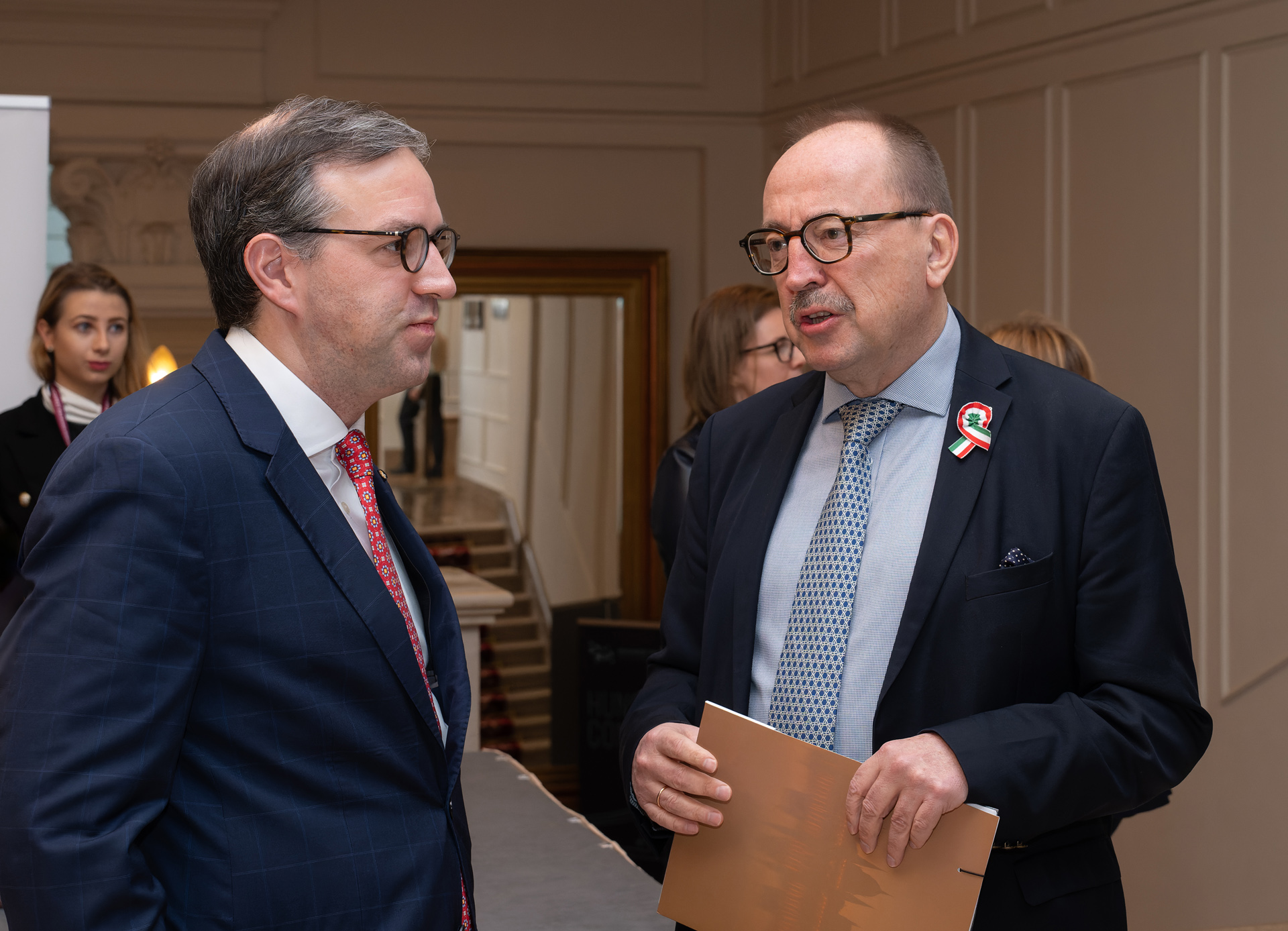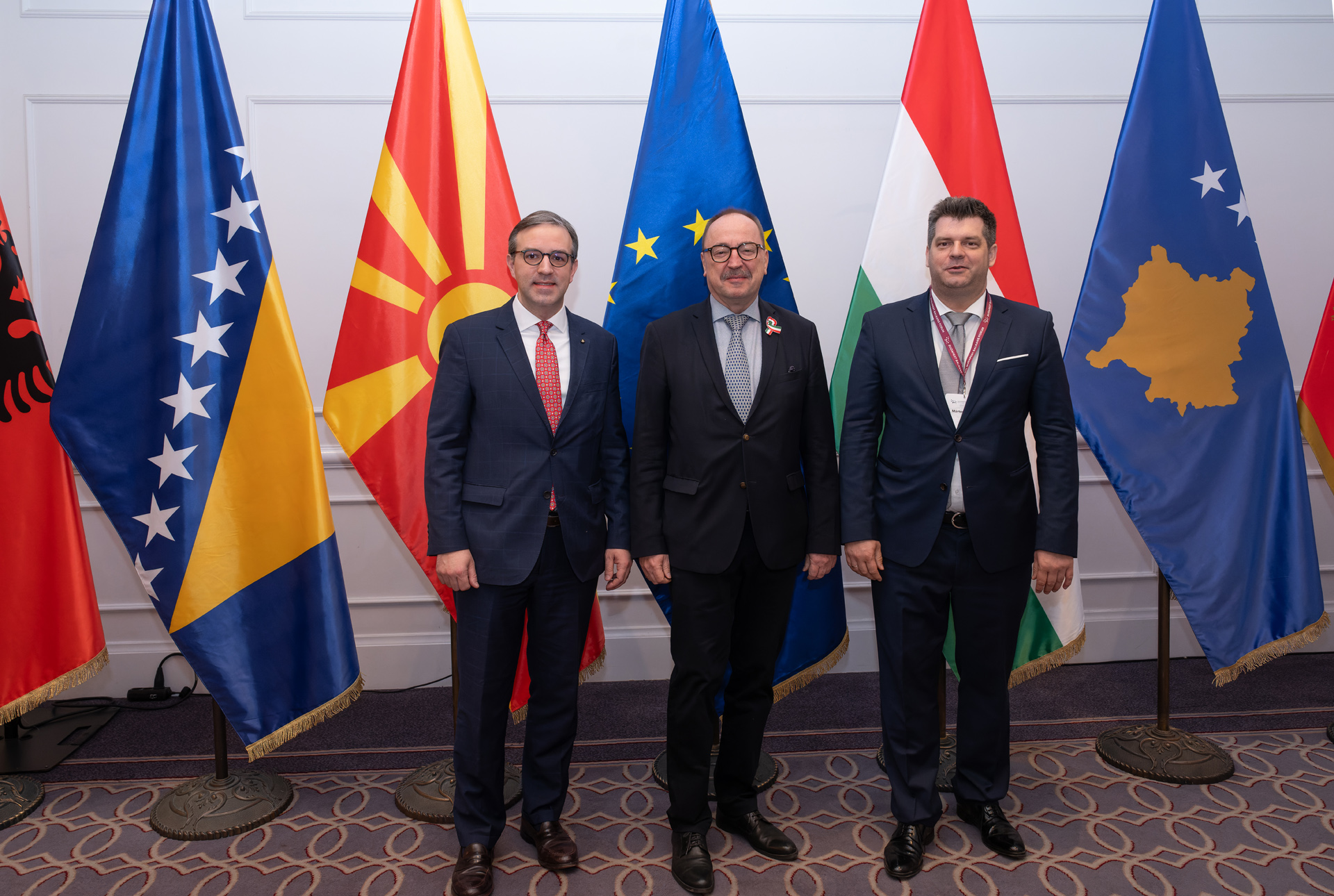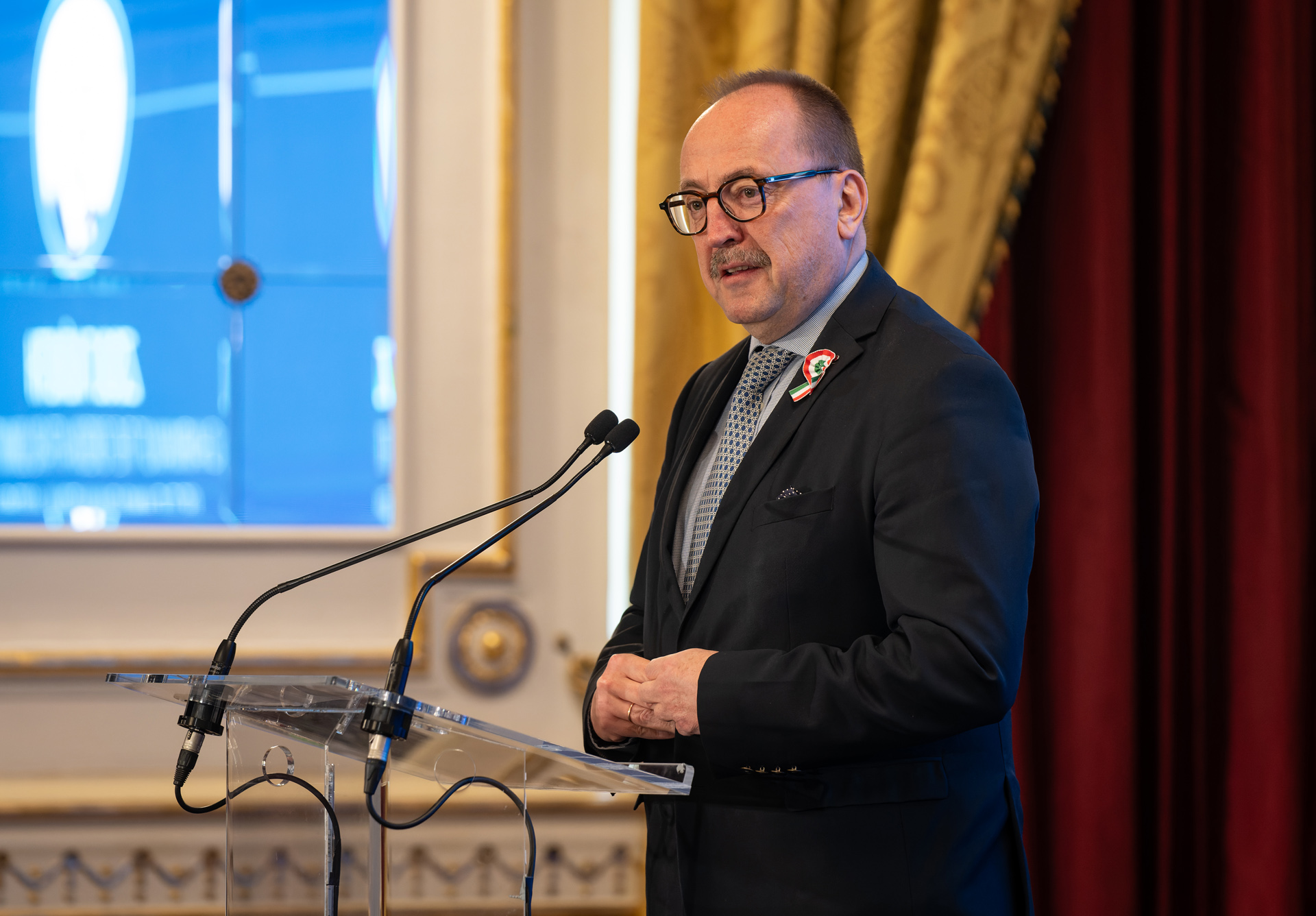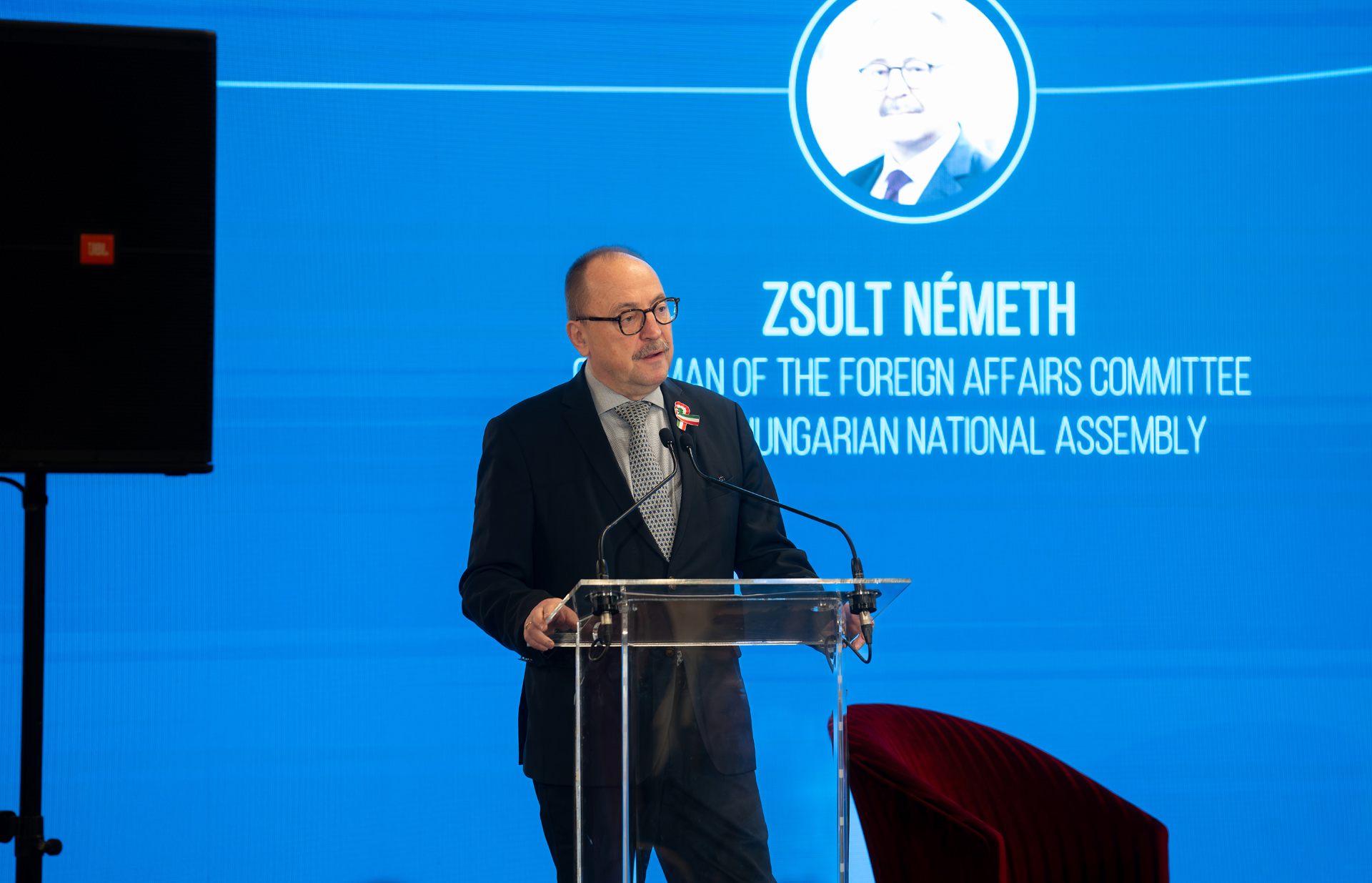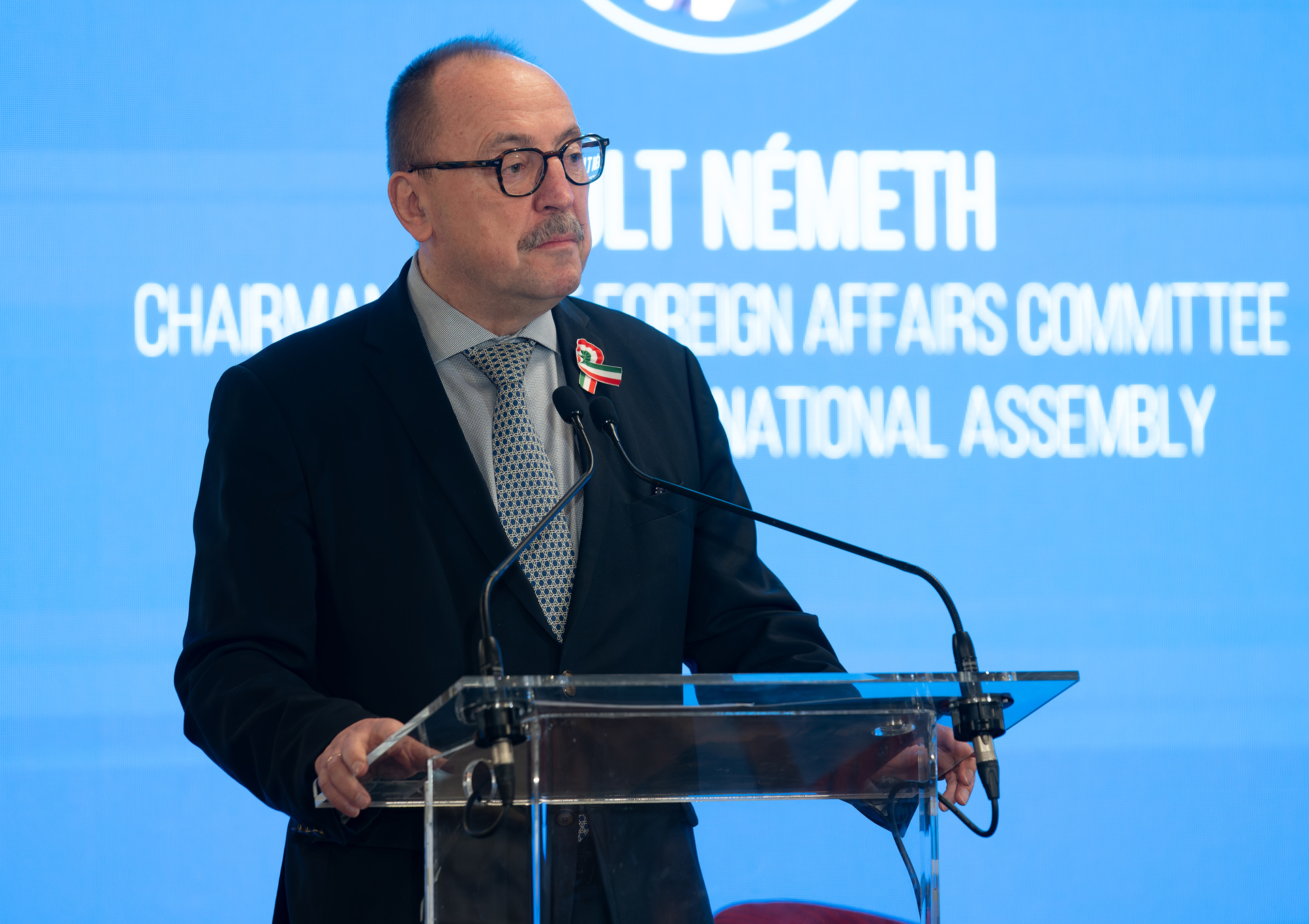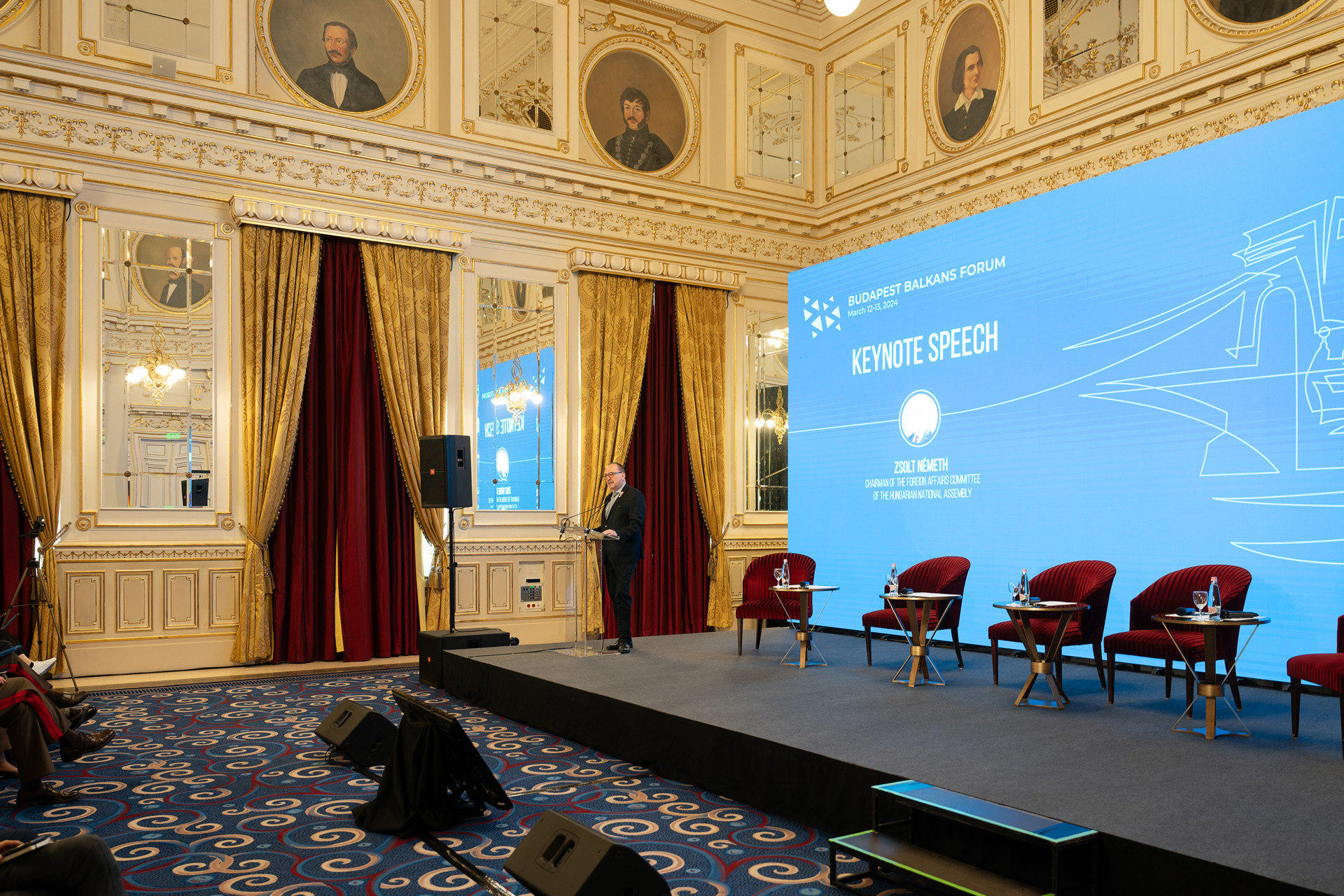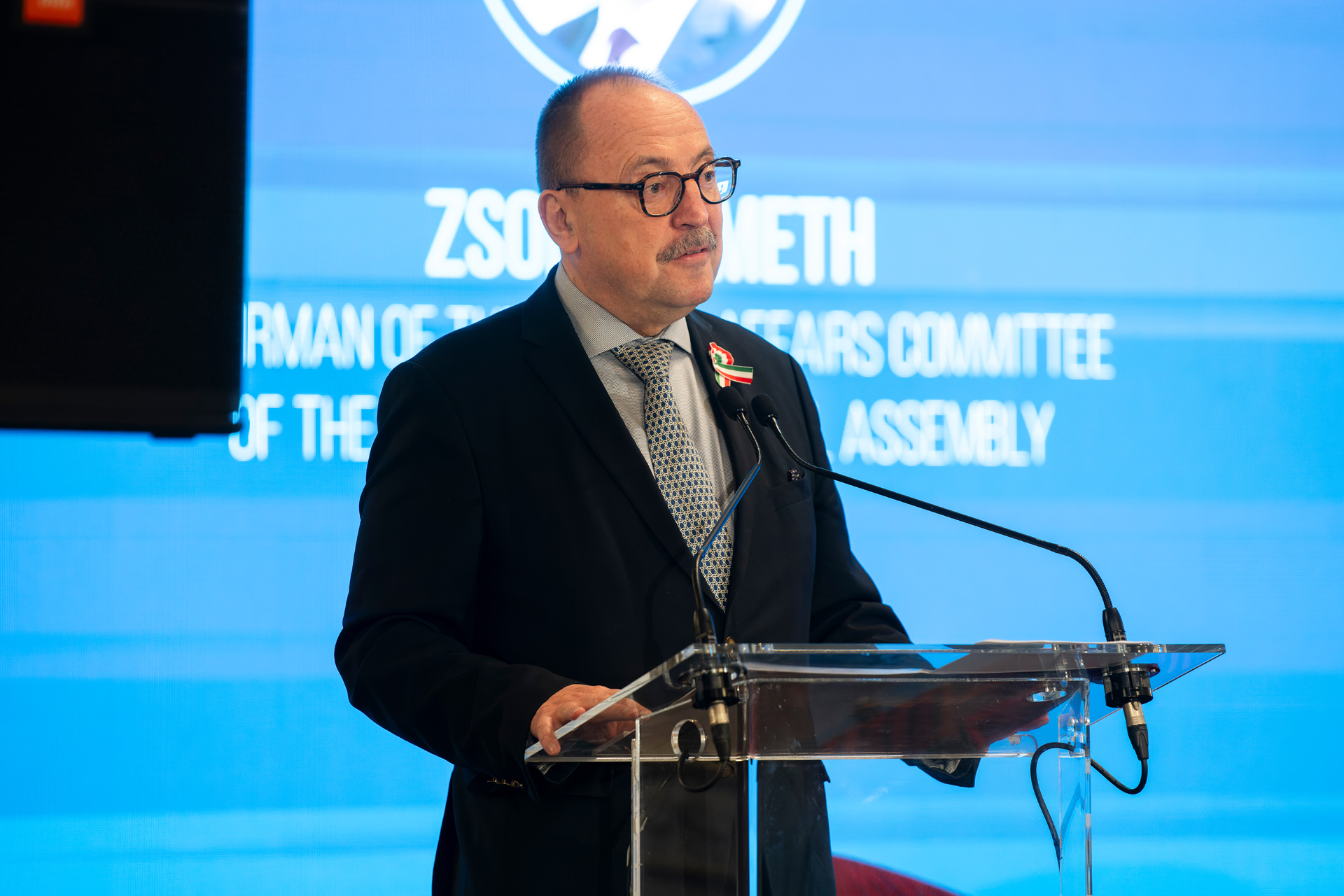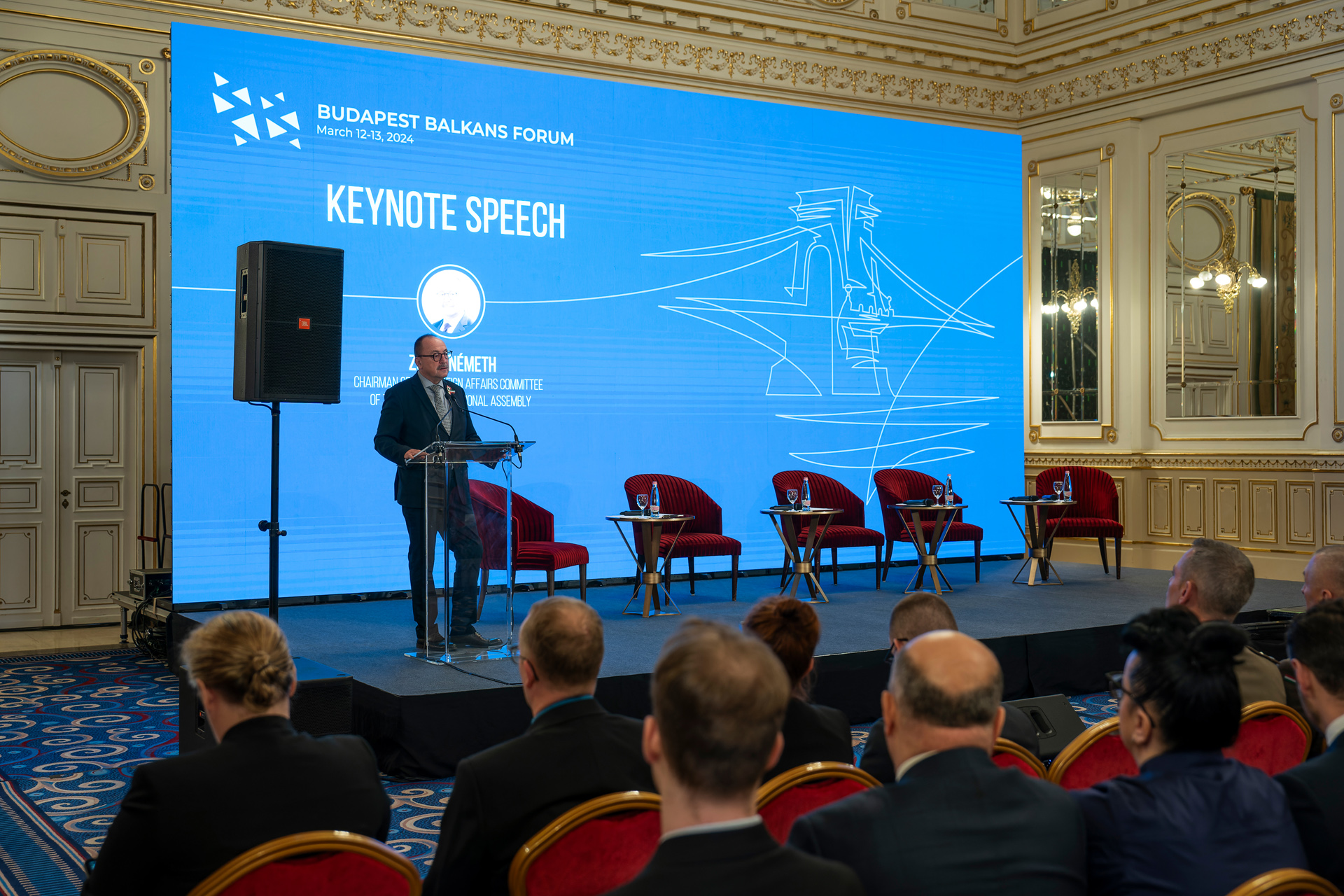Mr. Zsolt Németh, Chairman of the Foreign Affairs Committee of the Hungarian National Assembly opened the second day of the Budapest Balkans Forum with a keynote speech. Mr. Németh as delivering the speech focused on the relations of the Western Balkans region and the European Union (EU) in the light of current developments.
Chairman Németh started by explaining that Hungary has always supported the Western Balkans’ accession. In his view, for the European Union integration is both a strategic imperative and a moral obligation. He argued that facilitating the accession of the Western Balkan states is essential not only for regional stability but also as a response to the encroaching influence of Russian imperialism in the region. For Hungary, it is an utmost importance to integrate the Western Balkans into the EU as soon as possible.
In his address, Mr. Németh listed some reasons why Hungary stands firmly behind the Western Balkans’s path to EU membership. These reasons ranged from historical ties and shared cultural affinities to the tangible economic benefits that would accrue from enhanced cooperation and integration. He emphasized the importance of solidarity with the people of the Western Balkans, underscoring the potential for fostering deep and meaningful partnerships rooted in mutual respect and understanding.
However, he cautioned against a simplistic approach to diplomacy, urging for a nuanced understanding of the complex socio-political dynamics of the region. The Chairman also warned against the imposition of Western ideals and emphasized the need for diplomacy grounded in empathy and cultural sensitivity.
The integration of the Balkans into the European Union is not an easy task. There are several difficulties stemming from geopolitical struggles, ethnic tensions, and historical legacies of past conflicts. However, integration is a common interest for the European Union and the Balkans, maybe it is time to take further steps for the accession process. Hungary can play a pivotal role in supporting the Western Balkans and can help to accelerate this process.
Mr. Zsolt Németh stressed the economic benefits that would result from closer cooperation between Hungary and the Western Balkans. Enhanced trade relations, investment opportunities, and infrastructure projects have the potential to stimulate economic growth and development, benefiting both Hungary and the Balkan region. Furthermore, by promoting economic integration, Hungary aims to contribute to the overall prosperity and well-being of the Western Balkans, thereby fostering stability and reducing the risk of social unrest or conflict.
In the conclusion, the Chairman talked about Hungary’s multifaceted approach to supporting the Balkans’ integration into the European Union. From strategic considerations to economic opportunities and cultural diplomacy, Hungary’s engagement with the Western Balkans reflects a comprehensive and inclusive vision of European unity and cooperation. As the region continues its path towards European integration, Hungary stands ready to offer its support and assistance, working hand in hand with its Balkan neighbours to realize the shared vision of a united and prosperous Europe.
At the end of his speech, Mr. Zsolt Németh repeated that the Balkans need quality diplomacy, empathy and not blackmailing.

